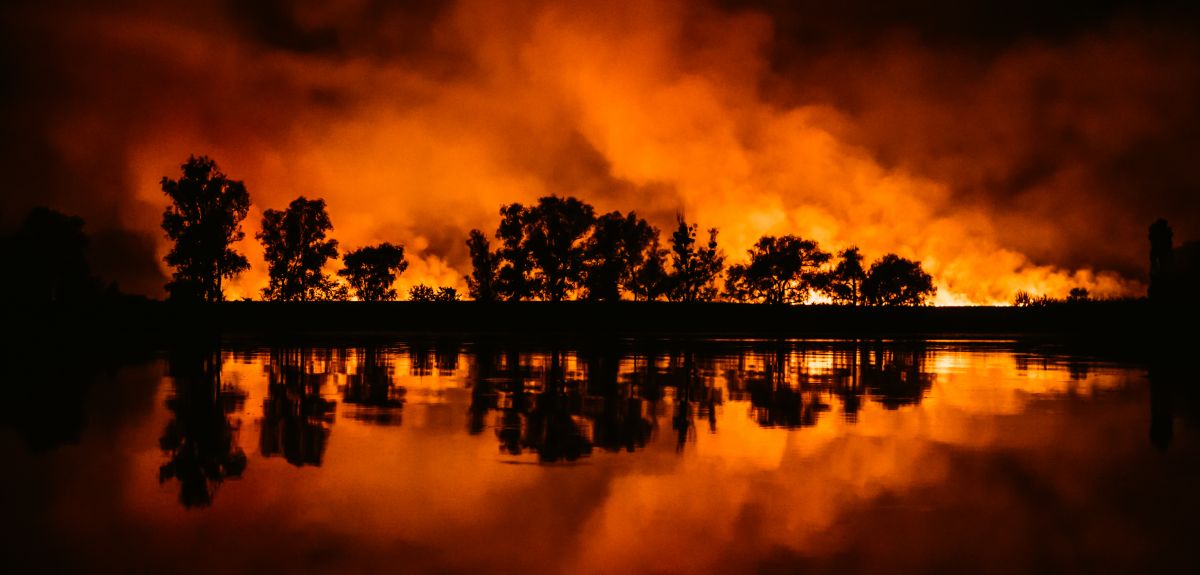
Bulk of social media content supports climate change research
The majority of content and commentary being shared on social media supports the scientific consensus on climate change, according to new research from the Oxford Internet Institute.
The findings are welcome relief from growing concern around the polarisation of the climate change debate. Despite broad consensus among scientists that climate change is both occurring and caused by human activity, the populist campaign expressing scepticism on the validity of the scientific consensus shows no signs of movement in their beliefs.
As the Internet and social media has become a key source of news and information, it also has become a prominent arena where misinformation and efforts to distort climate change discourse may be taking place. Researchers working on the Computational Propaganda Project, at the Oxford Internet Institute, are investigating the kind of content on climate change that is spread on Twitter and Facebook.
‘We were surprised to see that the majority of content and commentary being shared actually supports the scientific consensus on climate change. Very little commentary or content in mainstream conversation seems to belong to active climate sceptics,’ says Ana Grouverman, lead author on the report. ‘Our findings indicate that mainstream dialogue on these platforms embraces the scientific consensus.’ Only 4% of content on climate change on Twitter, and 1% on Facebook, was classified as intentionally ‘polarising and conspiratorial’ content.
The research looked at posts made over a two-week period by 288,855 accounts on Twitter and 13,330 public pages on Facebook.
Of the small amount of content that was found to be purposefully polarising and conspiratorial, video was the most popular medium. Nearly a third of shared links pointed to YouTube, where content promoting theories like ‘chemtrail’ (a belief that long-lasting condensation trails left in the sky by aircraft are chemical in nature and sprayed to cause harm) or intentional government manipulation of the environment featured prominently. 'This finding places more onus on platforms that enable the distribution of audiovisual content to mitigate issue of misinformation in science,' says Grouverman.
In the mainstream, climate sceptic content was not widely shared. Findings on Facebook indicated that groups who support the climate change consensus had a wider array of connections across other communities on the platform, while sceptic groups tended to be more isolated on the fringe. ‘This indicates that climate change advocates are highly integrated in the wider community discussing climate change on Facebook, while climate sceptics are significantly less integrated with the community,’ says Grouverman.
It is unclear how climate sceptics might become insular groups. ‘Future studies should look at sceptic communities in more detail, especially with regards to how someone might transition from having a fairly neutral opinion on climate change to joining a community that promotes climate scepticism,' says Dr Vidya Narayanan, researcher on the report. 'Insular communities will often use very specific words, symbols and hashtags not recognizable to outsiders, so qualitative approaches may be necessary before their activities can be studied at scale.’
Overall, expert analysis of climate change is significantly absent from Twitter and Facebook discussions on climate change. Only 2% (Twitter) and 3% (Facebook) of shared content was scientific expert source material. Much of the conversations on Twitter were driven by the sustainability and renewable energy industries, while non-profit organisations and climate activists dominated on Facebook.
‘Given how polarised this issue is in mainstream politics, it would have been easy to assume that social media is awash in climate sceptic content. Contrary to such expectations, however, our findings indicate that mainstream dialogue on these platforms embraces the scientific consensus,' says Narayanan. 'This puts more of the responsibility for spreading doubt about climate science on the shoulders of public figures and politicians.’
 Expert Comment: Why has Trump launched so many tariffs and will it cause a recession?
Expert Comment: Why has Trump launched so many tariffs and will it cause a recession?
 Expert Comment: Is it possible to support both AI innovation and human creativity?
Expert Comment: Is it possible to support both AI innovation and human creativity?
 Oxford unmasks the fraudsters behind the forgeries for April Fakes Day 2025
Oxford unmasks the fraudsters behind the forgeries for April Fakes Day 2025